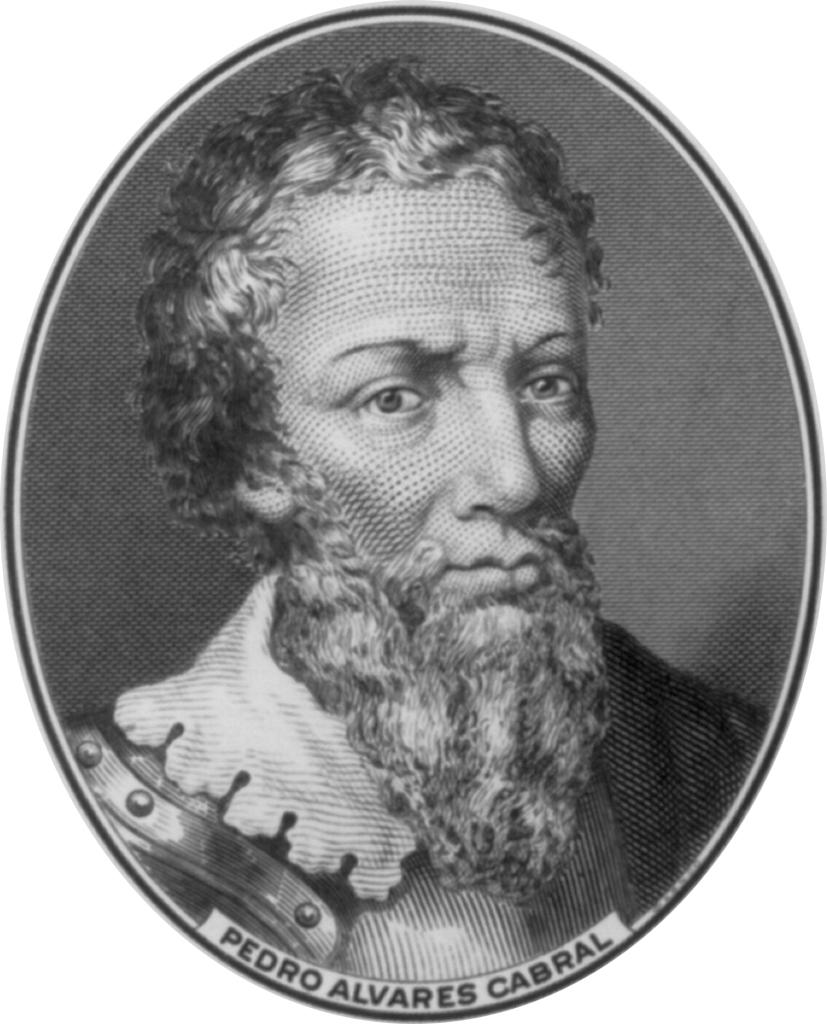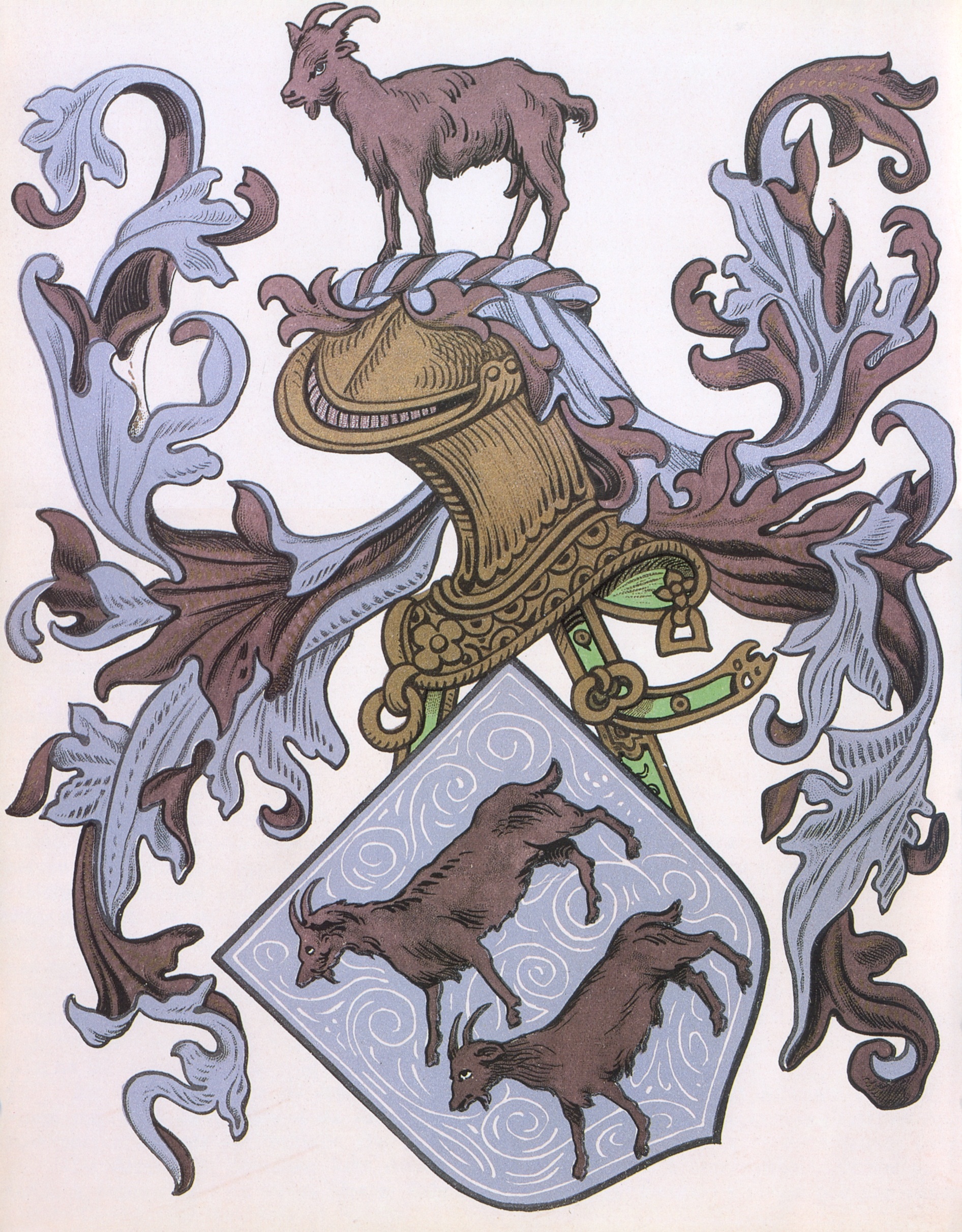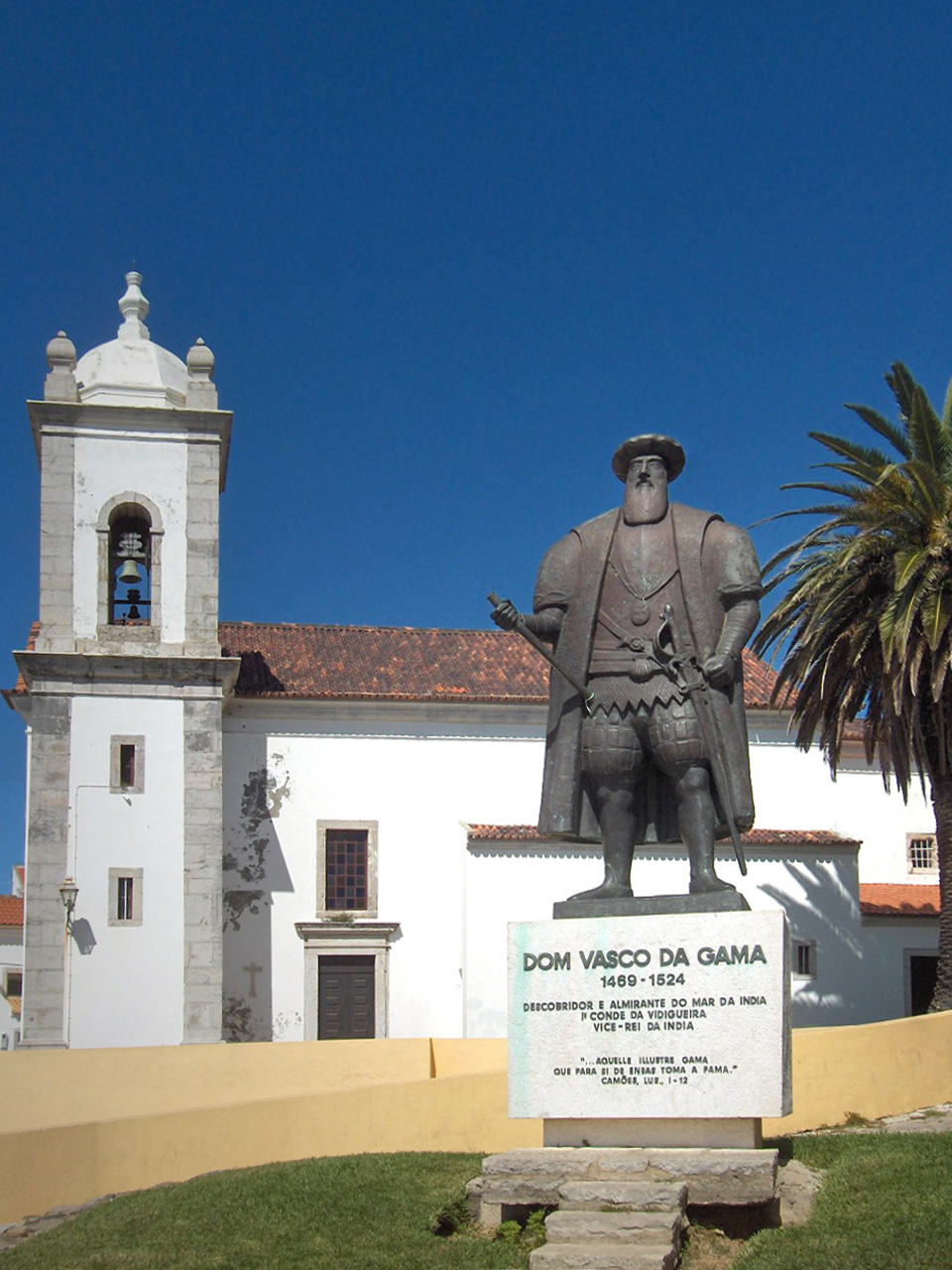|
Battle Of Cochin (1504)
The Battle of Cochin, sometimes referred as the Second Siege of Cochin, was a series of confrontations, between March and July 1504, fought on land and sea, principally between the Portuguese garrison at Cochin, allied to the Trimumpara Raja, and the armies of the Zamorin of Calicut and vassal Malabari states. The celebrated heroics of the tiny Portuguese garrison, led by Duarte Pacheco Pereira, fended off an invading army several hundred times bigger. It proved a humiliating defeat for the Zamorin of Calicut. He not only failed to conquer Cochin, but his inability to crush the tiny opposition undermined the faith of his vassals and allies. The Zamorin lost much of his traditional authority over the Malabar states of India in the aftermath. The preservation of Cochin secured the continued presence of the Portuguese in India. Background Since the fragmentation of the Chera state in the 10th century, the ruler of the city-state of Calicut ( Port.''Calecute''; now, Kozhiko ... [...More Info...] [...Related Items...] OR: [Wikipedia] [Google] [Baidu] |
Kochi
Kochi (), also known as Cochin ( ) ( the official name until 1996) is a major port city on the Malabar Coast of India bordering the Laccadive Sea, which is a part of the Arabian Sea. It is part of the district of Ernakulam in the state of Kerala and is commonly referred to as Ernakulam. Kochi is the most densely populated city in Kerala. As of 2011, it has a corporation limit population of 677,381 within an area of 94.88 km2 and a total urban population of more than of 2.1 million within an area of 440 km2, making it the largest and the most populous metropolitan area in Kerala. Kochi city is also part of the Greater Cochin region and is classified as a Tier-II city by the Government of India. The civic body that governs the city is the Kochi Municipal Corporation, which was constituted in the year 1967, and the statutory bodies that oversee its development are the Greater Cochin Development Authority (GCDA) and the Goshree Islands Development Authority (GIDA). ... [...More Info...] [...Related Items...] OR: [Wikipedia] [Google] [Baidu] |
Kingdom Of Portugal
The Kingdom of Portugal ( la, Regnum Portugalliae, pt, Reino de Portugal) was a monarchy in the western Iberian Peninsula and the predecessor of the modern Portuguese Republic. Existing to various extents between 1139 and 1910, it was also known as the Kingdom of Portugal and the Algarves after 1415, and as the United Kingdom of Portugal, Brazil and the Algarves between 1815 and 1822. The name is also often applied to the Portuguese Empire, the realm's overseas colonies. The nucleus of the Portuguese state was the County of Portugal, established in the 9th century as part of the ''Reconquista'', by Vímara Peres, a vassal of the King of Asturias. The county became part of the Kingdom of León in 1097, and the Counts of Portugal established themselves as rulers of an independent kingdom in the 12th century, following the battle of São Mamede. The kingdom was ruled by the Alfonsine Dynasty until the 1383–85 Crisis, after which the monarchy passed to the House of Aviz. Dur ... [...More Info...] [...Related Items...] OR: [Wikipedia] [Google] [Baidu] |
Arabs
The Arabs (singular: Arab; singular ar, عَرَبِيٌّ, DIN 31635: , , plural ar, عَرَب, DIN 31635, DIN 31635: , Arabic pronunciation: ), also known as the Arab people, are an ethnic group mainly inhabiting the Arab world in Western Asia, North Africa, the Horn of Africa, and the western List of islands in the Indian Ocean, Indian Ocean islands (including the Comoros). An Arab diaspora is also present around the world in significant numbers, most notably in the Americas, Western Europe, Arabs in Turkey, Turkey, Arab Indonesians, Indonesia, and Iranian Arabs, Iran. In modern usage, the term "Arab" tends to refer to those who both Arab identity, carry that ethnic identity and speak Arabic as their native language. This contrasts with the narrower traditional definition, which refers to the descendants of the tribes of Arabia. The religion of Islam was developed in Arabia, and Classical Arabic serves as the language of Islamic literature. 93 percent of Arabs are Muslims ... [...More Info...] [...Related Items...] OR: [Wikipedia] [Google] [Baidu] |
Factory (trading Post)
Factory was the common name during the medieval and early modern eras for an entrepôt – which was essentially an early form of free-trade zone or transshipment point. At a factory, local inhabitants could interact with foreign merchants, often known as factors. First established in Europe, factories eventually spread to many other parts of the world. The origin of the word ''factory'' is ( pt, feitoria; nl, factorij; french: factorerie, ). The factories established by European states in Africa, Asia and the Americas from the 15th century onward also tended to be official political dependencies of those states. These have been seen, in retrospect, as the precursors of colonial expansion. A factory could serve simultaneously as market, warehouse, customs, defense and support to navigation exploration, headquarters or ''de facto'' government of local communities. In North America, Europeans began to trade with the natives during the 16th century. Colonists created fact ... [...More Info...] [...Related Items...] OR: [Wikipedia] [Google] [Baidu] |
2nd Portuguese India Armada (Cabral, 1500)
The Second Portuguese India Armada was assembled in 1500 on the order of King Manuel I of Portugal and placed under the command of Pedro Álvares Cabral. Cabral's armada famously discovered Brazil for the Portuguese crown along the way. By and large, the Second Armada's diplomatic mission to India failed, and provoked the opening of hostilities between the Kingdom of Portugal and the feudal city-state of Calicut. Nonetheless, it managed to establish a factory in the nearby Kingdom of Cochin, the first Portuguese factory in Asia. Fleet The first India Armada, commanded by Vasco da Gama, arrived in Portugal in the summer of 1499, in rather sorry shape. Half of his ships and men had been lost thanks to battles, disease, and storms. Although Gama came back with a hefty cargo of spices that would be sold at enormous profit, he had failed in the principal objective of his mission: to negotiate a treaty with Calicut, the spice entrepôt on the Malabar Coast of India. Gama managed, ... [...More Info...] [...Related Items...] OR: [Wikipedia] [Google] [Baidu] |
Pedro Álvares Cabral
Pedro Álvares Cabral ( or ; born Pedro Álvares de Gouveia; c. 1467 or 1468 – c. 1520) was a Portuguese nobleman, military commander, navigator and explorer regarded as the European discoverer of Brazil. He was the first human in history to ever be in 4 continents, uniting all of them in his famous voyage of 1500, where he also conducted the first substantial exploration of the northeast coast of South America and claimed it for Portugal. While details of Cabral's early life remain unclear, it is known that he came from a minor noble family and received a good education. He was appointed to head an expedition to India in 1500, following Vasco da Gama's newly-opened route around Africa. The undertaking had the aim of returning with valuable spices and of establishing trade relations in India—bypassing the monopoly on the spice trade then in the hands of Arab, Turkish and Italian merchants. Although the previous expedition of Vasco da Gama to India, on its sea rou ... [...More Info...] [...Related Items...] OR: [Wikipedia] [Google] [Baidu] |
Vasco Da Gama
Vasco da Gama, 1st Count of Vidigueira (; ; c. 1460s – 24 December 1524), was a Portuguese explorer and the first European to reach India by sea. His initial voyage to India by way of Cape of Good Hope (1497–1499) was the first to link Europe and Asia by an ocean route, connecting the Atlantic and the Indian oceans. This is widely considered a milestone in world history, as it marked the beginning of a sea-based phase of global multiculturalism. Da Gama's discovery of the sea route to India opened the way for an age of global imperialism and enabled the Portuguese to establish a long-lasting colonial empire along the way from Africa to Asia. The violence and hostage-taking employed by da Gama and those who followed also assigned a brutal reputation to the Portuguese among India's indigenous kingdoms that would set the pattern for western colonialism in the Age of Exploration. Traveling the ocean route allowed the Portuguese to avoid sailing across the highly disputed Medit ... [...More Info...] [...Related Items...] OR: [Wikipedia] [Google] [Baidu] |
Black Pepper
Black pepper (''Piper nigrum'') is a flowering vine in the family Piperaceae, cultivated for its fruit, known as a peppercorn, which is usually dried and used as a spice and seasoning. The fruit is a drupe (stonefruit) which is about in diameter (fresh and fully mature), dark red, and contains a stone which encloses a single pepper seed. Peppercorns and the ground pepper derived from them may be described simply as ''pepper'', or more precisely as ''black pepper'' (cooked and dried unripe fruit), ''green pepper'' (dried unripe fruit), or ''white pepper'' (ripe fruit seeds). Black pepper is native to the Malabar Coast of India, and the Malabar pepper is extensively cultivated there and in other tropical regions. Ground, dried, and cooked peppercorns have been used since antiquity, both for flavour and as a traditional medicine. Black pepper is the world's most traded spice, and is one of the most common spices added to cuisines around the world. Its spiciness is due to the ch ... [...More Info...] [...Related Items...] OR: [Wikipedia] [Google] [Baidu] |
Kerala
Kerala ( ; ) is a state on the Malabar Coast of India. It was formed on 1 November 1956, following the passage of the States Reorganisation Act, by combining Malayalam-speaking regions of the erstwhile regions of Cochin, Malabar, South Canara, and Thiruvithamkoor. Spread over , Kerala is the 21st largest Indian state by area. It is bordered by Karnataka to the north and northeast, Tamil Nadu to the east and south, and the Lakshadweep Sea to the west. With 33 million inhabitants as per the 2011 census, Kerala is the 13th-largest Indian state by population. It is divided into 14 districts with the capital being Thiruvananthapuram. Malayalam is the most widely spoken language and is also the official language of the state. The Chera dynasty was the first prominent kingdom based in Kerala. The Ay kingdom in the deep south and the Ezhimala kingdom in the north formed the other kingdoms in the early years of the Common Era (CE). The region had been a prominent spic ... [...More Info...] [...Related Items...] OR: [Wikipedia] [Google] [Baidu] |
Portuguese Language
Portuguese ( or, in full, ) is a western Romance language of the Indo-European language family, originating in the Iberian Peninsula of Europe. It is an official language of Portugal, Brazil, Cape Verde, Angola, Mozambique, Guinea-Bissau and São Tomé and Príncipe, while having co-official language status in East Timor, Equatorial Guinea, and Macau. A Portuguese-speaking person or nation is referred to as " Lusophone" (). As the result of expansion during colonial times, a cultural presence of Portuguese speakers is also found around the world. Portuguese is part of the Ibero-Romance group that evolved from several dialects of Vulgar Latin in the medieval Kingdom of Galicia and the County of Portugal, and has kept some Celtic phonology in its lexicon. With approximately 250 million native speakers and 24 million L2 (second language) speakers, Portuguese has approximately 274 million total speakers. It is usually listed as the sixth-most spoken language, the third-most sp ... [...More Info...] [...Related Items...] OR: [Wikipedia] [Google] [Baidu] |
.jpg)





